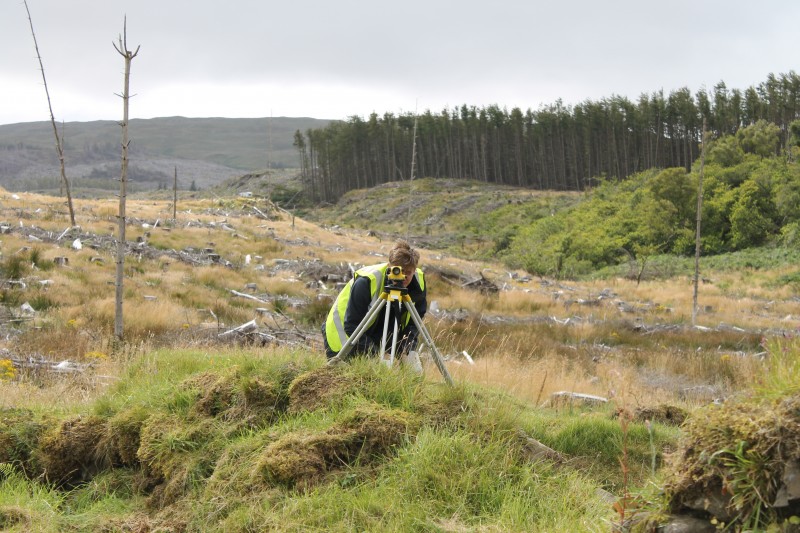Fieldwork

Location: South Myrescroft, Jedburgh TD8 6XJ, UK
Season: September 4, 2023 to September 15, 2023
Application Deadline: June 30, 2023
Deadline Type: Rolling
Website: https://www.harparchaeology.co.uk/field-schools/ancrum-mantle-walls
Program Type:
Field School
RPA Certified:
No
Affiliation:
Heritage and Archaeological Research Practice (HARP)
Project Director:
Ian Hill (HARP)
Project Description:
HARP, in association with the Ancrum and District Heritage Society (ADHS), will be running a two-week excavation field school from Monday 4th to Friday 15th September at the site of the Mantle Walls, Ancrum in the Scottish Borders. This field school is intended for those who have no prior experience with archaeological excavations, as full training will be provided, but we also gladly welcome those who have previous archaeological experience and are looking to increase their skill set and broaden their excavation experience. As we are working in partnership with the ADHS the field school will also provide an introduction to community heritage and archaeology, and how to work with local communities to research, excavate and understand their local heritage.
The Mantle (or Malton) Walls are the site of a former Bishop’s Place, likely belonging to the Bishops of Glasgow and dating back to the 12th or 13th century. Whilst no visible architecture remains, some upstanding masonry was visible on the site until the 19th century. Previous investigations, including geophysical survey and test excavation, have identified substantial built remains which led to the site being registered as a Scheduled Monument. Ploughing in the field regularly turns up medieval pottery and fragments of architecture from the building. Further information on the previous work on the site can be found on the ADHS website: ADHS – Mantle Walls
This excavation field school intends to trace the extent of building and investigate the surrounding area through field survey and test pitting and will provide students with a hands-on experience of working on an archaeological survey and excavation. All participants will learn how to excavate to a professional archaeological standard, as well as how to record the remains by completing context sheets, technical drawing, photography and surveying. Students will also have the opportunity to work with various artefact material types uncovered during the excavations such as pottery, glass and animal bone during post-excavation. Workshops on a variety of post excavation techniques including finds photography and environmental processing will also be provided.
This course will include:
Costs and Accommodation
There are two options available for this course:
Travel costs to Scotland are not included in either option. A non-refundable 25% deposit is required within two weeks of being offered a place on the field school in order to secure it. A full list of suggested items to bring will be sent out upon acceptance of a place on the course.
| Options | Cost |
| A) Tuition; Accommodation; Transport to site; Full Board on workdays. | £800 |
| B) Tuition; Transport from local campsite; Lunch on workdays. | £400 |
Workbooks/Portfolios
Each participant will have the opportunity to complete a training manual and portfolio. For an extra fee of £40 (GBP), participants will be provided with a training manual and portfolio that they will fill in during the course of the field school to take away with them. Individuals completing an Archaeological Skills Passport will have relevant sections checked off.
Application
There is no application deadline. Places are limited and are given on a first come first served basis. To apply for a place please complete the application form (available on the project website) and return to ian@harparchaeology.co.uk
Period(s) of Occupation: Medieval, Post-Medieval
Project Size: 1-24 participants
Minimum Length of Stay for Volunteers: 2 weeks
Minimum Age: 18
Experience Required: No Experience necessary, all welcome
Room and Board Arrangements:
For those selecting option A, accommodation will be provided in lodges at a local holiday park where twin rooms will be provided. Full facilities are provided at the park, which also has a shop, bar/restaurant, and laundry facilities. Meals are prepared communally on all working days, by participants. The holiday park is set in the countryside of the Scottish Borders, but local towns (Jedburgh, Melrose) are easily accessible by local bus services.
A full list of suggested items to bring will be sent out upon receipt of a deposit for your place on the course.
Academic Credit:
No formal credit offered but participants have the opportunity to complete a training manual/portfolio which can be used as evidence towards credit.
Ian Hill
H.A.R.P, 5 South Charlotte Street
Edinburgh
EH2 4AN
UK
Phone: 0333 920 9495
The AIA is North America's largest and oldest nonprofit organization dedicated to archaeology. The Institute advances awareness, education, fieldwork, preservation, publication, and research of archaeological sites and cultural heritage throughout the world. Your contribution makes a difference.